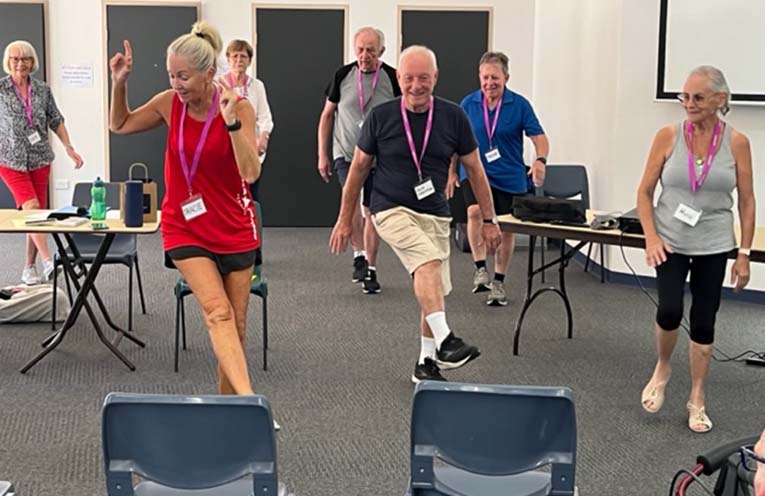
EVERYDAY 38 people in Australia are diagnosed with Parkinson’s Disease, and in Port Stephens there is a local support group here to help.
Parkinson’s is now the second most prevalent neurological disease after dementia.
 Advertise with News of The Area today.
Advertise with News of The Area today.It’s worth it for your business.
Message us.
Phone us – (02) 4981 8882.
Email us – media@newsofthearea.com.au
The Port Stephens Parkinson’s Support Group meets regularly.
The group’s recent meeting featured Evelyn Collin from the Neurological Clinic at John Hunter Hospital as guest speaker.
“Our secretary Laurelle Gordon-Smith presented an array of Australian native flowers to Evelyn for her involvement with our support group for the last fourteen years,” group leader Bob Crampton told News Of The Area.
“Evelyn’s presentation was well received by the 32 members who attended the meeting.”
Following the presentation, there was a Lucky Door prize of an aromatherapy massage at Barley Sugar Day Spa for one of the carers.
“It was won by Huia Trollope who was so happy to be able to have this wonderful massage,” Bob said.
Also in attendance were two of the group’s past presidents; John Dunnage, who joined the group in 2008, and Lee Anlezark, who joined in 2010.
One of the important activities offered by the group is a twice weekly exercise program held at Active Fitness in Medowie.
At the end of the meeting, exercise instructor Tracie Tickle did a short demonstration on how to exercise sitting down.
“This is so helpful for people who are not so agile.
“Being part of a support group is so helpful for everyone living with Parkinson’s,” Bob said.
For more details about the local support group, contact Laurelle on 0412 889 701 or contact the Parkinson’s NSW hotline on 1800 644 189 for information and counselling services which are free with dedicated Parkinson’s nurses and counsellors.
By Marian SAMPSON